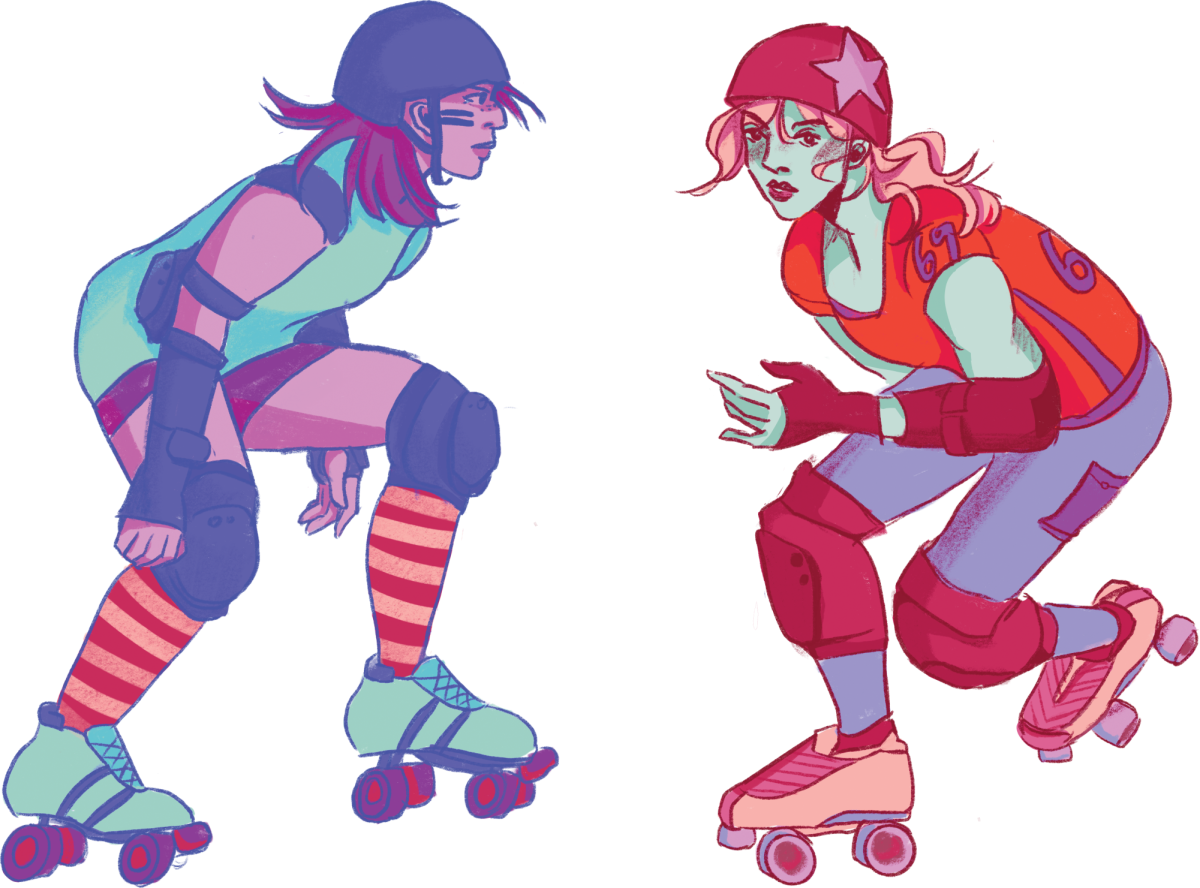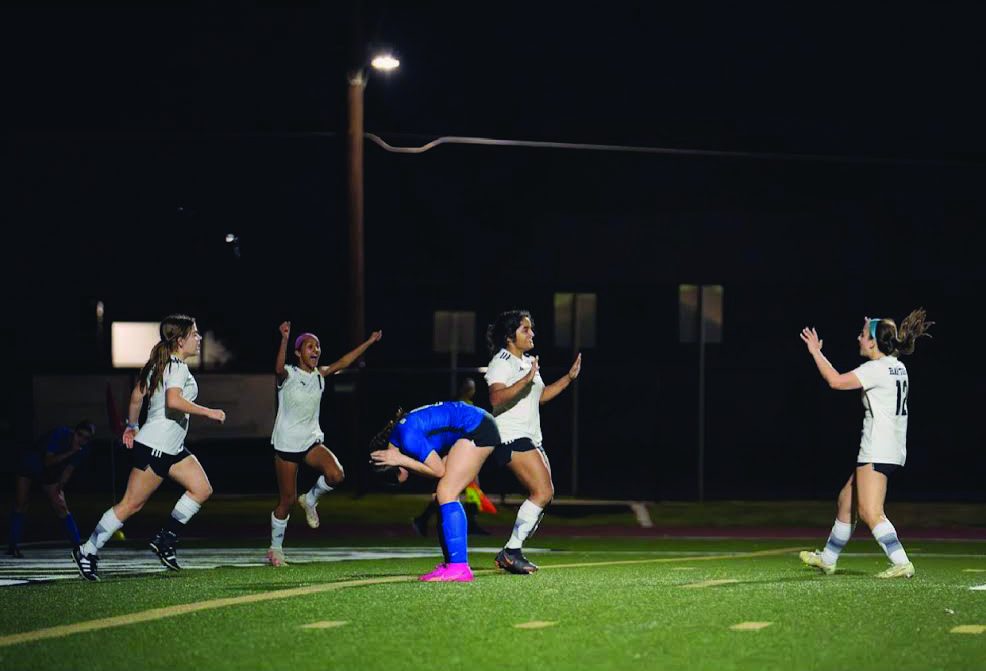In the years following its revival in Austin’s 2001 punk scene, modern roller derby’s— and subsequently, skating’s—popularity and media exposure has grown significantly at the city and national scale, particularly in female and queer communities. For some Austinites, skating has helped them find empowerment in being a part of a sport with a welcoming community.
While roller derby’s inception can be traced back to the 1930s, according to Texas Roller Derby (TXRD) league member Harli Grim, it was revolutionized when the Bad Girl Good Woman Productions (BGGW) league formed in 2001 to host exhibition matches alongside punk and hard rock musical acts. After a split over finances, TXRD was formed, which became nationally recognized after appearing most notably in “Whip It”, a movie starring Elliot Page.
“[In 2009] ‘Whip It’ was released, which featured both the TXRD name and had two of our skaters as stunt doubles, Sacralicious for Drew Barrymore’s Smashley Simpson and Rocky Casbah for Ari Graynor’s Eva Destruction,” Grim said. “2,800 people attended the Calvello Cup (TXRD’s championship cup) that year!”
In a web-exclusive interview on Oprah Winfrey’s website, director Drew Barrymore made it clear how personal the film was for her, stating she drew inspiration from experiences with the female camaraderie and intensity of roller derby camps. LASA’s Skate Club president junior Adele Tversky, while initially intimidated by the lack of women at local skate parks, found that these safe spaces are necessary for up-and-coming skaters.
“I think skating parks can be a little scary because there’s a lot of skateboarders who are pretty much all men, so it’s daunting when you’re just starting,” Tversky said. “But for the most part either they don’t really care what you’re doing if you’re being respectful or are going to cheer for you if you do something cool.”
Tversky initially struggled to find her place in the sport, as well as with getting a handle on the physicality that skating and roller derby are known for. However, instead of being discouraged, Tversky used her struggles to learn and develop her skills, building a lasting love for the sport in the process.
“I got my first pair of skates in fourth grade… since I first got them, I’ve really only had positive experiences skating,” Tversky said. “Sure, it sucks when you fall or get hurt, but I think I choose to look at those as a learning experience, like ‘Okay, maybe I need to start actually wearing my knee pads or do this trick differently next time.’”
With time, Tversky also became more confident of herself in public. She credits other female skaters for making her feel a part of a safe space in the skating community.
“At House Park, whenever there’s female quad skaters out there, I’ve always found them to be particularly kind and encouraging,” Tversky said. “I think it’s like a femme or girl solidarity thing, but it is comforting to see other women on skates.”
Junior Shahar Yaacob is a competitive figure skater with 12 years of experience. By being a coach and mentor for young skaters, she hopes to be a role model for her fellow skaters and inspire confidence and a love for the sport.
“I want to be able to share my sport with others and allow them to enjoy it for themselves,” Yaacob said. “From my personal skating journey, I’ve learned to prioritize fun over rigor and I take great care to try to pass on a positive skating experience to my students.”
In Yaacob’s words, enjoying the sport is much more than being good at skating; for her, it means being able to give herself up to a completely different, elevated state of mind once she puts on her skates.
“Figure skating for me is not only a form of exercise that keeps me healthy, but it clears my mind and helps me relax,” Yaacob said. “My favorite feeling is being able to feel the cool air on my face. Being on the ice is magical and really unlike anything else.”
According to both Yaacob and Grim, the greater emphasis on trusting your body and the skill of your movements is one of the most rewarding aspects of skating. In a community that lives out the philosophy of being confident in who you are in both sport and bonding, for Grim, skating has become an area of life where she can feel secure and empowered in her own body.
“Skating is important to me because it provides a safe and fun community space where I can freely be myself,” Grim said. “Everything else that has come along with it has been icing on the cake.”




